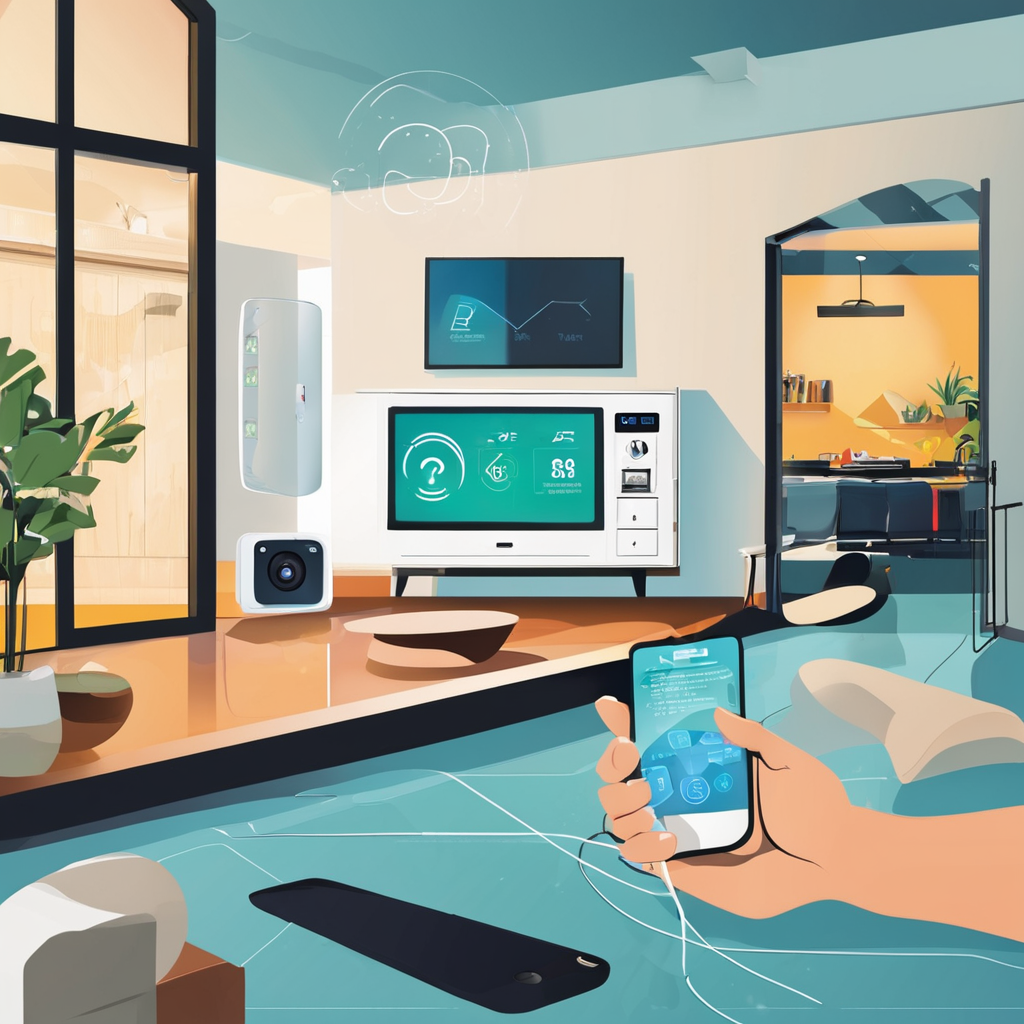Smart homes have become a significant part of daily life for many people around the world. With the advancement of technology, our homes are getting smarter, making our lives more convenient and efficient. From controlling lights and thermostats with a simple voice command to monitoring security cameras remotely, smart home devices are transforming the way we interact with our living spaces.
One of the key benefits of smart homes is the convenience they offer. Imagine being able to adjust your home’s temperature while you’re still at work or turning off the lights from the comfort of your bed. These conveniences not only save time but also contribute to a more energy-efficient lifestyle, helping to reduce utility bills and environmental impact.
Security is another crucial aspect that smart homes address. With smart security systems, homeowners can monitor their property in real-time, receive alerts about any unusual activity, and even remotely grant access to trusted individuals. This level of control and monitoring provides peace of mind and enhances overall safety within the home.
The integration of artificial intelligence (AI) in smart home devices has revolutionized the way we interact with technology at home. AI-powered assistants like Amazon’s Alexa and Google Assistant can perform a range of tasks, from setting reminders to providing weather updates, all through voice commands. This seamless integration of AI into daily life is making smart homes more intuitive and user-friendly.
The rise of smart home technology has also paved the way for greater connectivity among devices. The Internet of Things (IoT) allows various smart devices to communicate with each other, creating a unified ecosystem within the home. For example, a smart thermostat can adjust the temperature based on data from motion sensors, optimizing energy usage and comfort levels.
As smart home technology continues to evolve, the possibilities for customization and personalization are endless. Homeowners can tailor their smart home setups to suit their preferences, whether it’s creating custom lighting scenes, scheduling automated tasks, or integrating entertainment systems for a truly immersive experience. This level of personalization enhances comfort and convenience in everyday living.
In addition to convenience and security, smart homes also contribute to sustainability efforts. Energy-efficient smart devices help reduce overall energy consumption, leading to cost savings and a reduced carbon footprint. By monitoring and optimizing energy usage, smart homes play a crucial role in promoting eco-friendly practices and environmental conservation.
Despite the numerous benefits of smart homes, there are valid concerns regarding privacy and data security. With an increasing number of connected devices collecting and sharing data, the risk of privacy breaches and hacking attempts is a real threat. It is essential for homeowners to prioritize security measures such as strong passwords, regular software updates, and secure networks to safeguard their personal information.
The affordability of smart home technology has improved over the years, making it more accessible to a wider range of consumers. From budget-friendly smart plugs to advanced security systems, there are options available for every budget and lifestyle. This accessibility ensures that more people can enjoy the benefits of smart home technology without breaking the bank.
In conclusion, the rise of smart homes is reshaping the way we live, offering unprecedented convenience, security, and customization options. With technology constantly evolving, the future of smart homes holds even more exciting possibilities for enhancing daily life. Embracing smart home technology can truly revolutionize the way we interact with our living spaces, making our homes not just smart but also more comfortable, efficient, and sustainable.
